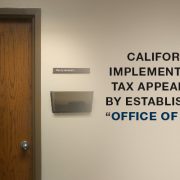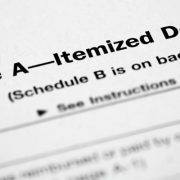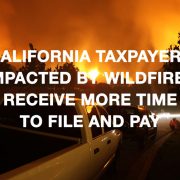Peru Becomes 114th Country to Sign FATCA Accord.
Under the Foreign Account Tax Compliance Act (“FATCA”), foreign banks, insurers and investment funds must send the Internal Revenue Service information about Americans’ and U.S. permanent residents’ offshore accounts worth more than $50,000. Institutions that fail to comply could effectively be frozen out of U.S. markets. The U.S. has entered into intergovernmental Agreements (“IGA’s”) with 113 countries for the implementation of FATCA.
Peru has now signed on to FATCA which requires Peruvian financial institutions to report information about U.S. customers’ accounts for transmission to the IRS. Peru becomes the 114th country to join this accord and the 14th Latin American country to join the accord along with Argentina, Belize, Brazil, Chile, Colombia, Costa Rica, Dominican Republic, El Salvador, Guatemala, Mexico, Panama, and Uruguay. All of these countries’ participation has a huge significance here in California given the large portion of the State’s population having connections to these countries.
Application to the United States
FATCA was enacted into law in 2010 as a way to help combat tax evasion by requiring foreign financial institutions to provide financial information on U.S. account holders or face severe monetary penalties collected from investments here in the U.S. The overwhelming acceptance of foreign countries to participate in FATCA means that the U.S. will be able to have an inflow of information from all countries regarding tax matters and therefore those with unreported foreign financial accounts are in even greater danger of penalties and possible prosecution by the IRS.
Federal tax law requires U.S. taxpayers to pay taxes on all income earned worldwide. U.S. taxpayers must also report foreign financial accounts if the total value of the accounts exceeds $10,000 at any time during the calendar year. Willful failure to report a foreign account can result in a fine of up to 50% of the amount in the account at the time of the violation and may even result in the IRS filing criminal charges.
Penalties for Non-Compliance.
Civil Fraud – If your failure to file is due to fraud, the penalty is 15% for each month or part of a month that your return is late, up to a maximum of 75%.
Criminal Fraud – Any person who willfully attempts in any manner to evade or defeat any tax under the Internal Revenue Code or the payment thereof is, in addition to other penalties provided by law, guilty of a felony and, upon conviction thereof, can be fined not more than $100,000 ($500,000 in the case of a corporation), or imprisoned not more than five years, or both, together with the costs of prosecution (Code Sec. 7201).
The term “willfully” has been interpreted to require a specific intent to violate the law (U.S. v. Pomponio, 429 U.S. 10 (1976)). The term “willfulness” is defined as the voluntary, intentional violation of a known legal duty (Cheek v. U.S., 498 U.S. 192 (1991)).
Additionally, the penalties for FBAR noncompliance are stiffer than the civil tax penalties ordinarily imposed for delinquent taxes. For non-willful violations, it is $10,000.00 per account per year going back as far as six years. For willful violations, the penalties for noncompliance which the government may impose include a fine of not more than $500,000 and imprisonment of not more than five years, for failure to file a report, supply information, and for filing a false or fraudulent report.
Lastly, failing to file Form 8938 when required could result in a $10,000 penalty, with an additional penalty up to $50,000 for continued failure to file after IRS notification. A 40% penalty on any understatement of tax attributable to non-disclosed assets can also be imposed.
Voluntary Disclosure
The IRS has special programs for taxpayers to come forward to disclose unreported foreign accounts and unreported foreign income. The main program is called the Offshore Voluntary Disclosure Program (OVDP). OVDP offers taxpayers with undisclosed income from offshore accounts an opportunity to get current with their tax returns and information reporting obligations. The program encourages taxpayers to voluntarily disclose foreign accounts now rather than risk detection by the IRS at a later date and face more severe penalties and possible criminal prosecution.
For taxpayers who willfully did not comply with the U.S. tax laws, we recommend going into the 2014 Offshore Voluntary Disclosure Program (OVDP). Under this program, you can get immunity from criminal prosecution and the one-time penalty is 27.5% of the highest aggregate value of your foreign income producing asset holdings.
For taxpayers who were non-willful, we recommend going into the Streamlined Procedures of OVDP. Under these procedures the penalty rate is 5% and if you are a foreign person, that penalty can be waived. This is a very popular program and we have had much success qualifying taxpayers and demonstrating to the IRS that their non-compliance was not willful.
What Should You Do?
Protect yourself from excessive fines and possible jail time. Let the tax attorneys of the Law Offices Of Jeffrey B. Kahn, P.C. located in Orange County, San Jose and elsewhere in California help ensure that you are in compliance with federal tax laws.











 Follow
Follow Follow
Follow